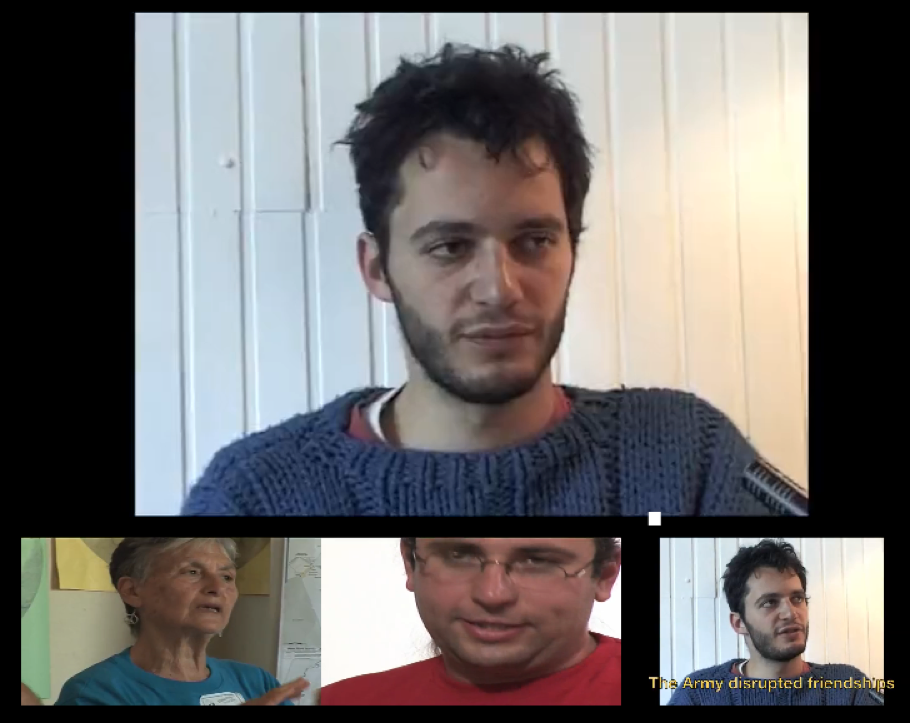The Only Democracy? » Discrimination » Terry Fletcher responds to Audrey Farber’s post on Palestinian democracy
Terry Fletcher responds to Audrey Farber’s post on Palestinian democracy
In her recent post A true Democracy; if Israel would only let it, Audrey Farber paints a very rosy picture of Palestinian democracy, both present and future. Other commentators and human rights organizations paint a quite different picture, at least of the present.
In this New York Review of Books article, Nathan Thrall asserts,
A year into Fayyad’s first term, Mamdouh al-Aker, then head of the PA’s human rights organization, spoke of the government’s “militarization” and asserted that “a state of lawlessness had shifted to a sort of a security state, a police state.”
Charges of authoritarianism have intensified since. Abbas, whose term expired during the war in Gaza, has been ruling by presidential decree. There has been no legislature since June 2007, and judicial rulings are frequently ignored by the security services. Fayyad, for all his commitment to accountability and transparency, has repeatedly been found in polls to have less legitimacy than the Hamas prime minister in Gaza, Ismail Haniyeh, and oversees a government that in a recent Global Integrity Index tied with Iraq as the sixth most corrupt in the world.
In other respects, too, the PA’s practices have come under severe criticism. According to Sha’wan Jabarin, the director of the Palestinian human rights group al-Haq, torture has in recent months again become routine. In polls taken since Fayyad took office, West Bank residents have consistently reported feeling less safe than Gazans, whose lives under Hamas rule are in many respects worse. The Ministry of Religious Affairs has dictated Friday sermons to be read by imams. Palestinian journalists, according to Amnesty International, were detained and threatened during the Gaza war for reporting on government suppression. The Palestinian Authority, since Fayyad became prime minister, has twice ranked lower in the Reporters Without Borders Press Freedom Index than any other Arab government. And Freedom House now gives the PA the same rating for political rights that it does for civil liberties—”not free.”
Unfortunately, police forces in virtually all Middle-Eastern countries are up to more sinister activities than “standing around in the shade of armored trucks,” the two Palestinian governments being no exception.
Human Rights Watch has documented cases of torture under PA detention while accusing the Hamas government in Gaza of capricious imprisonments, torture and arrests for ‘morality offenses’, while Amnesty International has leveled similar charges against the PA. and has called Hamas executions of suspected collaborators deplorable.”
Thrall argues that it is US interference, training and pressure that are producing the human rights abuses in the West Bank, something I don’t think would be likely to cease if Palestine does indeed become a country. The U.S. seems to be trying to turn Abbas’ Palestinian Authority in to yet another Middle Eastern U.S. client state, a project that will necessarily require severe repression of a population that may have other plans for its future.
While it is important for progressives to respond to and correct the demonization of Palestinians all too common in the US and Israel, it is equally important the we not fall into the trap of idealizing them, their leaders or their governments. The fact that Palestinians have a religiously diverse society has not prevented fundamentalist Islamist movements from becoming powerful forces in that society, and, as documented by Human Rights Watch, attempting to impose “Islamic morals” on others. Rather, we progressives need to continue to support those fighting for a democratic, egalitarian and peaceful future, be they religious, secular, Israeli, Palestinian, Jewish, Christian, Druze or Muslim.
Filed under: Discrimination · Tags: Audrey Farber, NY Review of Books, Palestinian democracy








 “You have a choice! Israeli Anti-Militarists Speak”
“You have a choice! Israeli Anti-Militarists Speak”